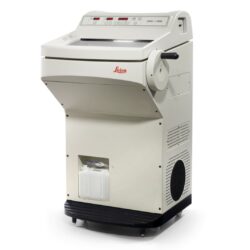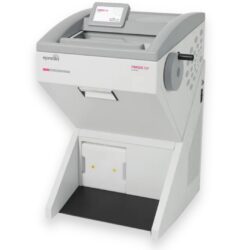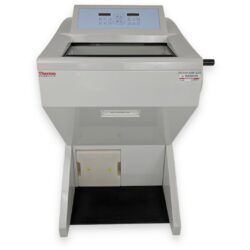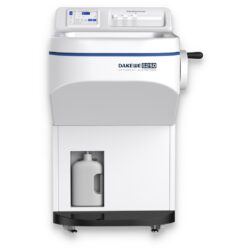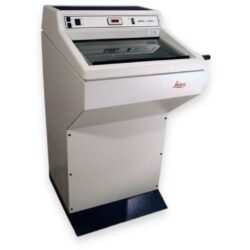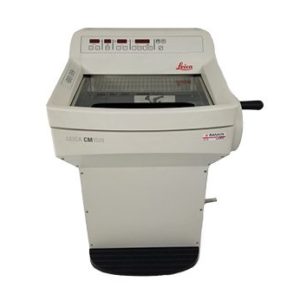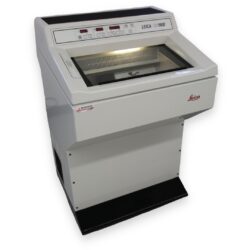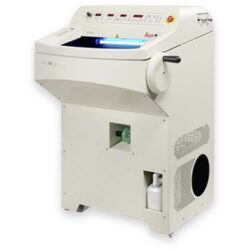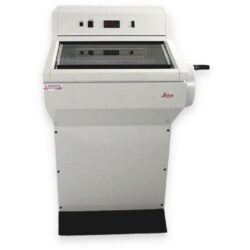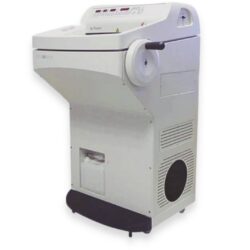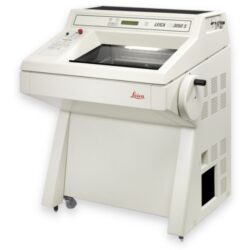Cryostats
Cryostats are used for sectioning fresh frozen tissue at cryogenic temperatures for cancer diagnostics or research. A cryostat will hold temperatures of -20 to -35 degrees celsius, and in some cases can cool a sample as low as -50 degrees celsius. A tissue sample is embedded in a tissue freezing medium on a ‘cryochuck’ (or specimen disc). Cryostats keep low temperatures with a refrigeration system that utilizes a compressor.
A cryostat is a type of laboratory instrument that is used to cut very thin slices (typically less than 20 micrometers thick) of biological tissue samples. It is called a “cryostat” because it is designed to cut tissues at very low temperatures, typically in the range of -20 to -40 degrees Celsius.
Cryostats work by freezing the tissue samples in a cryogen such as liquid nitrogen or dry ice, and then using a specialized microtome (a device used to cut thin slices of tissue) to cut the frozen tissue into thin slices. The frozen tissue is more brittle and easier to cut than unfrozen tissue, which allows for the production of very thin, uniform slices.
Cryostats are commonly used in research and medical settings to study the structure and function of tissues at the microscopic level. They are an essential tool in the field of histology, which is the study of tissues at the microscopic level, and are used to prepare tissue samples for a wide range of applications, including diagnosing diseases, studying the effects of drugs on tissues, and researching the structure and function of tissues.
Cryostats are also used in a variety of other applications, including the production of very thin slices of materials such as metals and ceramics for use in electron microscopy and other types of materials analysis.
Rankin supplies both new and professionally refurbished cryostats, reconditioned back to OEM specification. We reset the lifespan on used cryostats through our remanufacturing process with trained biomedical technicians.
Showing all 11 results

